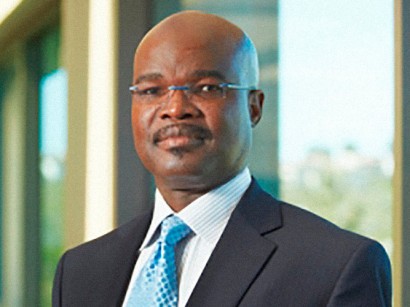By Prof Marjorie Mbilinyi
Resumen; La Kavazi Mwalimu Nyerere (Nyerere Centro de Recursos) acogió recientemente la Tercera Cátedra Mwalimu Nyerere, proporcionando un espacio de bienvenida para el análisis y el debate sobre temas de desarrollo en Tanzania y el continente africano. En «Educación Superior y el Programa para el Desarrollo de África», el profesor Paul Zeleza habló sobre la dramática masificación de la educación superior en todo el mundo y en África, al lado de la privatización en el paso con la reforma macroeconómica neoliberal, y la creciente importancia de África como un sitio para la inversión de capital y la integración regional y el comercio. A continuación la entrevista realizada.
Kavazi la Mwalimu Nyerere (Nyerere Resource Centre) recently hosted the Third Mwalimu Nyerere Lecture, providing a welcome space for analysis and debate on development issues in Tanzania and the African continent.
In «Higher Education and Africa’s Development Agenda», Prof Paul Zeleza talked about the dramatic ‘massification’ of higher education worldwide and in Africa, side by side with privatization in step with neoliberal macroeconomic reform, and Africa’s increasing importance as a site for capital investment and regional integration and trade.
The growing opportunities for meaningful employment and entrepreneurship depend however on having required capacities and skills. He called for a restructuring of higher education to meet labour market demands, increased resources and enhanced academic autonomy and freedom of speech.
I think more thought is required about four major challenges facing Tanzanian higher education: 1) poor quality primary and secondary education; 2) inappropriate learning methods; 3) market-oriented research; and 4) increasing restrictions on freedom of thought and speech.
How can quality be achieved in high education without quality education at lower levels?
A high proportion of primary school leavers lack basic literacy and numeracy skills. In 2014, one fourth of tested Standard 7 pupils were unable to do standard 2 level numeracy tasks up to multiplication level; and 43 per cent were unable to read a Standard 2 level English story (UWEZO 2016). How and what will these students learn in secondary school where the language of instruction is English? The learning inequalities according to district, household income, rural-urban location and mother’s education will increase at secondary and higher level, thus furthering the class formation process. There is a need to prioritise all levels of education, beginning with preprimary, in order to achieve quality higher education for all.
Are students encouraged to think for themselves?
The increase in higher education enrolment has not been accompanied by adequate resources for qualified lecturers, equipment and learning facilities. Many students are computer illiterate, unable to write coherent essays, and lack access to basic text books and up-to-date libraries, relying on lecture notes instead. There is little if any opportunity for one-on-one or small group discussions with experienced researchers or lecturers; seminars if any are led by graduate assistants. Learning and examination methodologies do not nurture critical thinking, creativity and analysis, which are the foundation for lifelong learning and sustainable development. The resulting mind set of students is geared towards passing examinations, and not exploring new ideas. Learner-centred active participatory pedagogy is required to enhance critical thinking, creativity and in-depth analysis.
Does university research advance theory as well as practical application?
The curriculum in any subject matter reflects the intellectual capacity and research agenda of lecturers. Today’s development challenges require historical analysis of changing contextual factors in order to understand basic causes and identify appropriate strategies for change. Basic research provides space for challenging the parameters of mainstream ideas and addressing practical development issues in new innovative ways. However, neoliberal policies of higher education led to a shift from basic research to ‘short and quick’ consultancy work which meets market demands of private corporations and donor agencies. As Chachage S. Chachage argues in Ghettoisation of Basic Research in Higher Education (2016), higher education provides «training in skills but not in thinking». Deskilling and reskilling of education has accompanied restructuring processes in Tanzania and worldwide, producing technicians to keep the wheels of global corporate capital going – but not the innovators, scientists and visionaries required for autonomous, inclusive and sustainable development. Promote basic research side by side with practical applied and policy oriented research.
Is the university a space for open dialogue and debate? Freedom of speech, thought and communication has been undermined by Cyber Crime and Statistics legislation. Intellectuals in and outside higher education institutions reportedly fear to speak openly. This restricts space for open dialogue and debate, and encourages researchers and students to look for ‘safe’ noncontroversial topics instead of grappling with the basic causes of inequality, poverty and injustice. In Chachage’s words «the quest for academic freedom as a right for the producers of knowledge is only meaningful if the universities and their academic members renew their commitment to the public good».
Fuente: http://allafrica.com/stories/201610040581.html








 Users Today : 42
Users Today : 42 Total Users : 35460251
Total Users : 35460251 Views Today : 57
Views Today : 57 Total views : 3418952
Total views : 3418952